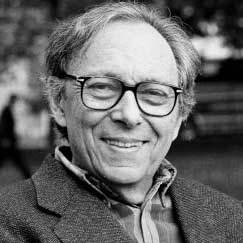Authors

Jean Starobinski studied classical literature, and then medicine at the University of Geneva, and graduated from that school with a doctorate in letters (docteur ès lettres) and in medicine. He taught French literature at the Johns Hopkins University, the University of Basel and at the University of Geneva, where he also taught courses in the history of ideas and the history of medicine. His existential and phenomenological literary criticism is sometimes grouped with the so-called "Geneva School". He has written landmark works on French literature of the 18th century – including works on the writers Jean-Jacques Rousseau, Denis Diderot, Voltaire – and also on authors of other periods (such as Michel de Montaigne). He has also written on contemporary poetry, art, and the problems of interpretation. His books have been translated in dozens of languages. His knowledge of medicine and psychiatry brought him to study the history of melancholia (notably in the Trois Fureurs, 1974). He was the first scholar to publish work (in 1964) on Ferdinand de Saussure's study of anagrams. Jean Starobinski is a member of the Académie des Sciences Morales et Politiques (a component of the Institut de France) and other French, European and American learned academies. He has honorary degrees (honoris causa) from numerous universities in Europe and America.

Swiss philosopher and writer Jean Jacques Rousseau held that society usually corrupts the essentially good individual; his works include The Social Contract and Émile (both 1762). This important figure in the history contributed to political and moral psychology and influenced later thinkers. Own firmly negative view saw the post-hoc rationalizers of self-interest, apologists for various forms of tyranny, as playing a role in the modern alienation from natural impulse of humanity to compassion. The concern to find a way of preserving human freedom in a world of increasingly dependence for the satisfaction of their needs dominates work. This concerns a material dimension and a more important psychological dimensions. Rousseau a fact that in the modern world, humans come to derive their very sense of self from the opinions as corrosive of freedom and destructive of authenticity. In maturity, he principally explores the first political route, aimed at constructing institutions that allow for the co-existence of equal sovereign citizens in a community; the second route to achieving and protecting freedom, a project for child development and education, fosters autonomy and avoids the development of the most destructive forms of self-interest. Rousseau thinks or the possible co-existence of humans in relations of equality and freedom despite his consistent and overwhelming pessimism that humanity will escape from a dystopia of alienation, oppression, and unfreedom. In addition to contributions, Rousseau acted as a composer, a music theorist, the pioneer of modern autobiography, a novelist, and a botanist. Appreciation of the wonders of nature and his stress on the importance of emotion made Rousseau an influence on and anticipator of the romantic movement. To a very large extent, the interests and concerns that mark his work also inform these other activities, and contributions of Rousseau in ostensibly other fields often serve to illuminate his commitments and arguments.